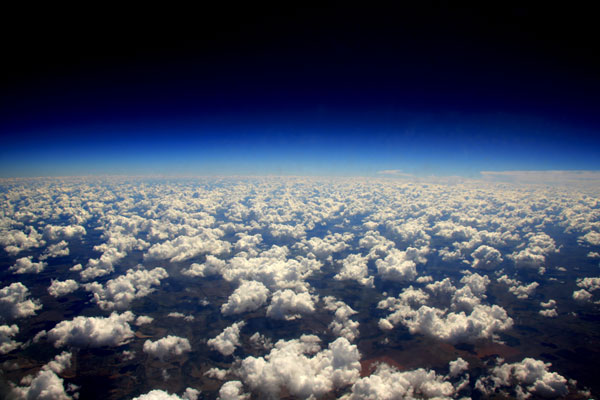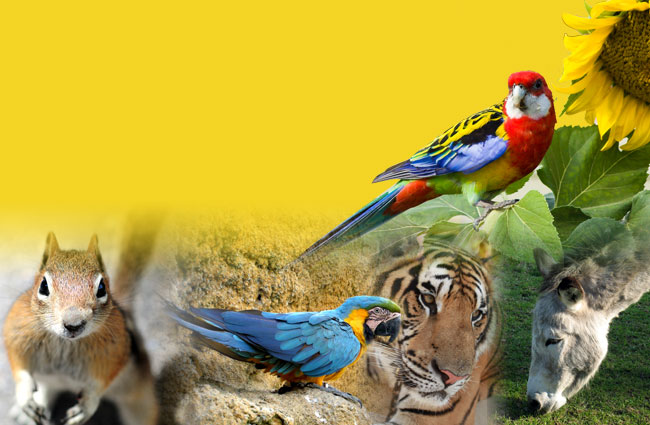There are many lessons in the creation of man for those who reflect.
Thinking Over
The Verses Of The Qur'an
 |
|---|
The Qur'an is the last book Allah sent to all mankind. Every person living on the earth is responsible for learning the Qur'an and fulfilling the commands communicated in it. Most people, however, do not learn it and fulfill what Allah commands in the Qur'an, although they accept it as a divine book. This is a consequence of their not thinking about the Qur'an, but knowing it by incomplete information gained here and there. For a man who reflects, on the other hand, the importance of the Qur'an and its place in man's life is very great.
First of all, someone who reflects wants to know The Creator Who created him and the universe in which he lives, gave him life when he was nothing, and bestowed countless blessings and beautiful things on him. He wants to learn what kind of conduct He would be pleased with. The Qur'an, which Allah sent through His Messenger, is a guide answering the questions above. For this reason, man needs to know the book Allah revealed to people as a guide and in which He distinguished good from evil. He needs to ponder over each verse and fulfill what Allah orders in the most proper and pleasing way. Allah states the purpose for which the Qur'an was revealed to people:
No indeed! It (the Qur'an) is a reminder to which anyone who wills may pay heed. But they will only heed if Allah wills. He is entitled to be feared and entitled to forgive. (Surat al-Muddaththir: 54-55)
Many people read the Qur'an, but the important thing, just as Allah states in His verses, is to ponder on each verse of the Qur'an, to draw a lesson from that verse and improve one's conduct in compliance with these lessons. Someone who reads the verse, "For truly with hardship comes ease; truly with hardship comes ease," (Surat al-Inshirah: 5-6), for example, reflects upon it. He understands that Allah creates ease with each hardship, and therefore, the only thing he has to do when he meets hardship is to put his trust in Allah and find the ease that is with it. Allah's promise being so, we see that giving up hope or being stricken with panic in moments of difficulty is a sign of a weakness in our faith. After reading this verse and reflecting upon it, our conduct will agree with the verse throughout our lives. In the Qur'an, Allah relates stories from the lives of the prophets and messengers who lived in the past, so that people can learn the ideal conduct, conversation and lives of a person with whom Allah is pleased, and take them as examples. Allah states in some of His verses that people must think over the stories of the messengers and draw lessons from them:
And (We left a Sign) also in Musa when We sent him to Pharaoh with clear authority. (Surat adh-Dhariyat: 38)
We rescued him (Nuh) and the occupants of the Ark and made that into a Sign for all the worlds. (Surat al-'Ankabut: 15)
In the Qur'an, some of the attributes of past nations, their manners and the disasters that befell them are mentioned. It would be a great misconception to read these verses merely as a narration of historical events which simply relate the incidents that befell past nations. This is because, just as in all other verses, Allah has revealed the verses about past nations for us to think over, and for us to amend our conduct by deriving lessons from the events that came to pass on these nations:
We bore him on a planked and well-caulked ship, which ran before Our eyes – a reward for him who had been rejected. We left it as a Sign. But is there any rememberer there? How terrible were My punishment and warnings! We have made the Qur'an easy to remember. But is there any rememberer there? (Surat al-Qamar: 13-17)
Allah has revealed the Qur'an as a guide to all people. Therefore, reflecting upon every verse of the Qur'an, and living according to it by deriving lessons and warnings from every verse is the only way to gain the approval, mercy and the Paradise of Allah.
What does Allah Summon People to Think about in the Qur'an?
Just as in this ayah of Surat an-Nahl, in many other of His verses, Allah invites people to reflect. Thinking over the things Allah calls us to think about and seeing the hidden purposes and the creational miracles He has created is an act of worship. Each subject on which we reflect helps us to further understand and appreciate the omnipotence, wisdom, knowledge, art and other attributes of Allah.
Allah Summons Man to Think over His Own Creation
 |
|---|
Allah Summons People to Think Over the Creation of the Universe
 Man should ponder every animate or inanimate being Allah created. |
|---|
Allah Summons People to Think over the Temporary Nature of the Life of this World
Would any of you like to have a garden of dates and grapes, with rivers flowing underneath and containing all kinds of fruits, then to be stricken with old age and have children who are weak, and then for a fierce whirlwind containing fire to come and strike it so that it goes up in flames? In this way Allah makes His Signs clear to you, so that hopefully you reflect.(Surat al-Baqara: 266)
Allah Summons People to Think over the Blessings They Possess
There are Signs in that for people who reflect. In the earth there are diverse regions side by side and gardens of grapes and cultivated fields, and palm-trees sharing one root and others with individual roots, all watered with the same water. And We make some things better to eat than others. There are Signs in that for people who use their intellect. (Surat ar-Ra'd: 3-4)

|
|---|
Allah Summons Man to Think on the Fact that the Whole Universe Has Been Created for Man
And by it He makes crops grow for you and olives and dates and grapes and fruit of every kind. There is certainly a Sign in that for people who reflect. He has made night and day subservient to you, and the sun and moon and stars, all subject to His command. There are certainly Signs in that for people who use their intellect. And also the things of varying colors He has created for you in the earth. There is certainly a Sign in that for people who pay heed. It is He Who made the sea subservient to you so that you can eat fresh flesh from it and bring out from it ornaments to wear. And you see the ships cleaving through it so that you can seek His bounty, and so that hopefully you will show thanks. He cast firmly embedded mountains on the earth so it would not move under you, and rivers and pathways so that hopefully you would be guided, and landmarks. And they are guided by the stars. Is He Who creates like him who does not create? So will you not pay heed? (Surat an-Nahl: 11-17)
 Attributing the formation of day and night, the movements and the location of the Earth and the Sun to coincidence is great heedlessness. Allah has created day and night only for men. |
|---|
Allah Summons People to Think about Their Own Selves

|
|---|
Allah Summons People to Think about Good Values and Deeds
Allah commands justice and doing good and giving to relatives. And He forbids indecency and doing wrong and tyranny. He warns you so that hopefully you will pay heed. (Surat an-Nahl: 90)
You who believe! Do not enter houses other than your own until you have asked permission and greeted their inhabitants. That is better for you, so that hopefully you will pay heed. (Surat an-Nur: 27)
Allah Summons Man to Think about the Animate Beings He Creates
And remember Our servants Ibrahim, Ishaq and Ya'qub, men of true strength and inner sight. We purified their sincerity through sincere remembrance of the Abode. (Surah Sad: 45-46)
What are they awaiting but for the Hour to come upon them suddenly? Its Signs have already come. What good will their reminder be to them when it does arrive? (Surah Muhammad: 18))

|
|---|
Allah Summons Man to Think about the Animate Beings He Creates
 He who reflects can see many extraordinary features in the animate beings Allah creates. This way, he can come to know the endless power and knowledge of Allah. |
|---|
Allah Summons Man to Think about the Punishments That Might Suddenly Befall Him
Say: "What do you think? If Allah took away your hearing and your sight and sealed up your hearts, what god is there, other than Allah, who could give them back to you?" Look how We vary the Signs, yet still they turn away! (Surat al-An'am: 46)
Say: "What do you think? If Allah's punishment were to come upon you suddenly by night or openly by day, would any but the wrongdoing people be destroyed?" (Surat al-An'am: 47)
Say: "What do you think? If His punishment came upon you by night or day, what part of it would the evildoers then try to hasten?" (Surah Yunus: 50)
Do they not see that they are tried once or twice in every year? But still they do not turn back. They do not pay heed. (Surat at-Tawba: 126)
We gave Musa the Book after destroying the earlier nations, to awaken people's hearts and as a guidance and a mercy so that hopefully they would pay heed. (Surat al-Qasas: 43)
We destroyed those of your kind in the past. But is there any rememberer there? (Surat al-Qamar: 51)
seized Pharaoh's people with years of drought and scarcity of fruits so that hopefully they would pay heed. (Surat al-A'raf: 130)
Allah Summons Man to Think about the Qur'an
Will they not ponder the Qur'an? If it had been from other than Allah, they would have found many inconsistencies in it. (Surat an-Nisa': 82)
Do they not ponder the word (of Allah)? Has anything come to them that did not come to their ancestors the previous peoples? (Surat al-Muminun: 68)
It (the Qur'an) is a Book We have sent down to you, full of blessing, so let people of intelligence ponder its Sign and take heed. (Surah Sad: 29)
We have made it (the Qur'an) easy in your own tongue so that hopefully they will pay heed. (Surat ad-Dukhan: 58)
No indeed! It is truly a reminder to which anyone who wills may pay heed. (Surat al-Muddaththir: 54-55)
In this way We have sent it down as an Arabic Qur'an and We have made various threats in it so that hopefully they will have taqwa or it will spur them into remembrance. (Surah Ta Ha: 113)
The Messengers of Allah Summoned Their People, Who Lacked Understanding, To Reflect
His people argued with him. He said; "Are you arguing with me about Allah when He has guided me? I have no fear of any partner you ascribe to Him unless my Lord should will such a thing to happen. My Lord encompasses all things in His knowledge so will you not pay heed? (Surat al-An'am: 80)
Allah Summons People to Resist the Influence of Satan
Allah Encourages the Person to Whom the Message of the Qur'an is Communicated to Think Deeply
Allah Invites People to Think about Death and Dreams

|
|---|
